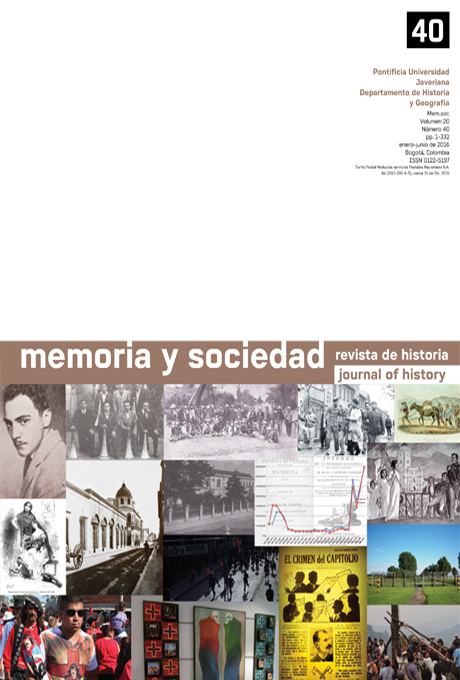Abstract
Where does political violence come from, and what has been the position of historians be- fore it? This article contributes to said in- vestigation, placing back together the way in which liberals founded an insurmountable hostility regarding the conservatives, which led them to see war as the only way to recover their predominance in the political arena and to undo the regeneration work. We carry out a detailed reconstruction of the attitude and the political notions underlying the actions of the liberals that allowed the most impatient of the group to impose over the rest of the par- ty. Based on the aforementioned, we outline an interpretation of the violent answers that arose in the Colombian political scene. This outline, instead of conceding to fatalism, deals with understanding the conflict in the frame of democracy, where pluralism is both a cha- racteristic and an issue.
The journal Memoria y Sociedad is registered under a Creative Commons Attribution 4.0 International Public License. Thus, this work may be reproduced, distributed, and publicly shared in digital format, as long as the names of the authors and Pontificia Universidad Javeriana are acknowledged. Others are allowed to quote, adapt, transform, auto-archive, republish, and create based on this material, for any purpose (even commercial ones), provided the authorship is duly acknowledged, a link to the original work is provided, and it is specified if changes have been made. Pontificia Universidad Javeriana does not hold the rights of published works and the authors are solely responsible for the contents of their works; they keep the moral, intellectual, privacy, and publicity rights.
Approving the intervention of the work (review, copy-editing, translation, layout) and the following outreach, are granted through an use license and not through an assignment of rights. This means the journal and Pontificia Universidad Javeriana cannot be held responsible for any ethical malpractice by the authors. As a consequence of the protection granted by the use license, the journal is not required to publish recantations or modify information already published, unless the errata stems from the editorial management process. Publishing contents in this journal does not generate royalties for contributors.

